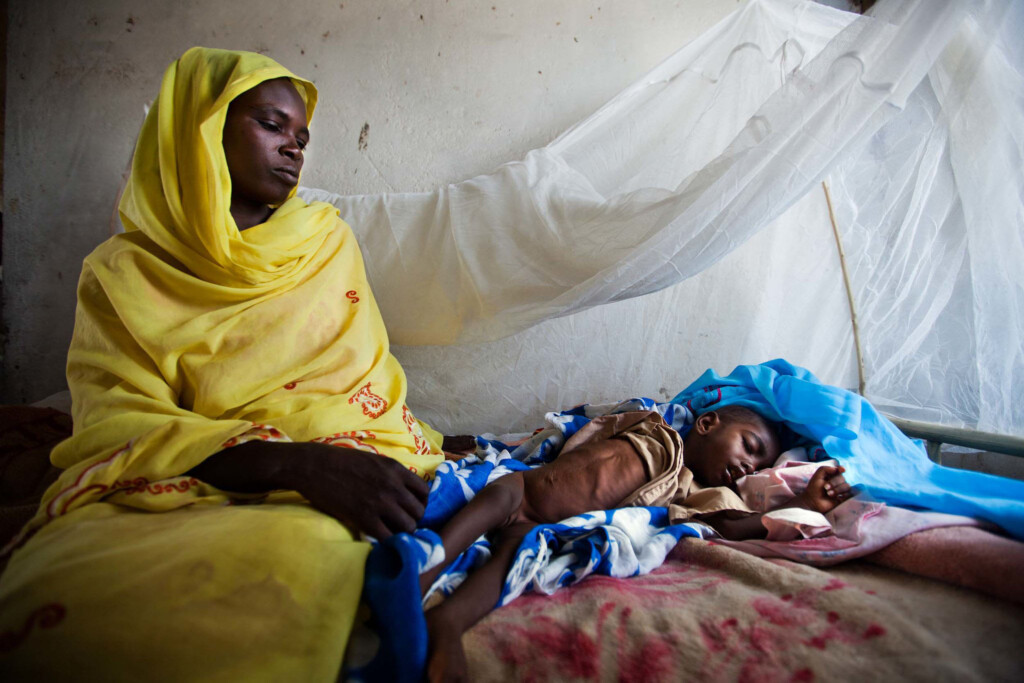Health Minister to WHO: Sudan faces poverty, disease, ongoing conflicts

A woman with her severely malnourished baby at a Darfur hospital (File photo: Albert González Farran / UNAMID)
Sudan faces many challenges, including poverty, disease, and ongoing conflicts, the Sudanese Minister of Health addressed the meeting of the Regional Committee of the World Health Organization (WHO) in Cairo yesterday. The minister explained that “Sudan has endured a devastating war since April 15 this year, resulting in more than five million being displaced from the states affected by the war to other states, and about a million people seeking refuge in neighbouring countries.”
In his address to the WHO committee, he explained that the Sudanese people suffer from increasingly high rates of infectious diseases (including malaria, other fevers) and non-infectious ones, such as diabetes, high blood pressure, kidney diseases, and tumours. Additionally, the nation suffers from frequent epidemics, and weak maternal and child health, as indicated by high maternal and child mortality rates and exacerbated by malnutrition.
Matters are worsened by the increasingly fragile health infrastructure. “Most specialized health services and equipment in Khartoum has been lost, such as: the main hospital for diagnosing and treating oncology, and hospitals for cardiology and surgery, gastrointestinal endoscopy, orthopaedics, paediatric surgery and diagnostic services (MRI – CT scan), and ambulances.”
Decrying the loss of the main stock of Sudan’s medical supplies, he explained that the losses add up to approximately $500 million.
His speech comes after a statement on Thursday, Frauke Ossig, head of mission for Médecins Sans Frontières, stated in that “Sudan’s healthcare system is on the brink of collapse”.
The organisation commented on this extreme scarcity of medicines, saying that “many medicines are not affordable for people who need them, and as a result: patients with chronic diseases suffer from serious complications and sometimes die.”
Frauke continued: “Without urgent action, the most vulnerable people will continue to bear the brunt of the violence, resulting in more avoidable deaths.”
The health minister concluded his speech by asserting his commitment to “addressing these challenges and improving the public health of the Sudanese people.”











 and then
and then